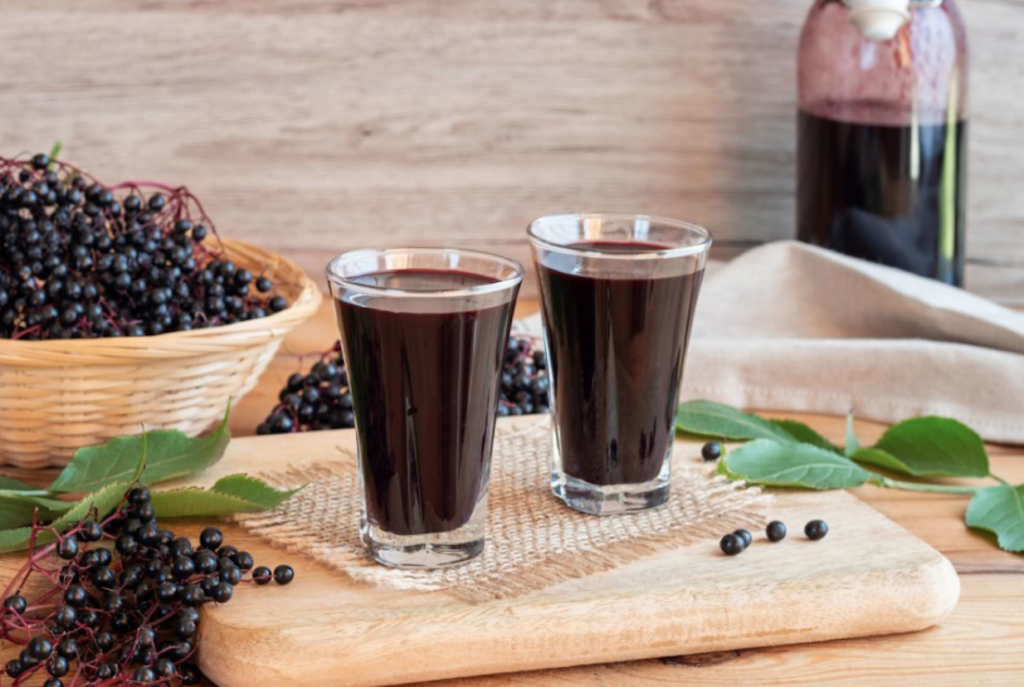Like many health trends, elderberry is having a bit of a moment but you might not know just how well deserved it is. Whether you are considering adding elderberry to your diet or you simply want to know more about this amazing fruit and how you can incorporate it into your broader eating patterns.
To start, elderberries come from the Sambucus elder tree and grow in clusters of tiny, deep purple berries. These were harvest long ago for medicinal benefits but are also popularly used in pies and even syrups.
Beginning with the nutritional benefits of elderberries, they are both low-impact calorically while being abundant in vitamins and minerals. For example, one cup of elderberries contains approximately 100 calories, one gram of fat, one gram of protein, and 27 carbohydrates. At 52 milligrams of vitamin C, a cup of elderberries contains close to 90% of your daily recommended intake on top of being antioxidant-rich and full of fiber.
Typical uses of elderberries include making jams and jellies as well as syrups and even drinks like smoothies. In the past, people even fermented elderberries to make a kind of wine. Of course, how you eat them will largely determine how beneficial they are to your body. While we have no doubt an elderberry pie has more nutritional benefits than most, they may be outweighed by the sugars and fats necessary to make the pie in the first place. The point here is that you can incorporate the nutritional benefits of elderberries into your diet without having to sacrifice eating the things you love.
As far as health benefits go, there is extensive anecdotal evidence to support the notion that elderberries help the body stave off and grapple with the cold of flu. Some studies undergird this notion, pointing out that the cohort given daily doses of elderberry syrup recovered from the flu much more quickly than those who were not. Another study of air travelers found a similar impact of elderberry on fight off a cold or flu illness with those members that were given a capsule of 300mg of elderberry extract recovering much more quickly than those who did not receive it. There are ongoing studies now that even demonstrate a positive correlation between elderberry and lower rates of cardiovascular disease thanks to the fruit’s natural ability to lower fat and cholesterol levels in the blood. This is due, in part, to the flavanols in elderberries – an antioxidant component – and is also tied to the fruit’s ability to lower a patient’s risk of developing diabetes.
Other benefits of consuming elderberries include lowered cancer risk, decreased constipation, reduced inflammation, and even lesser risk of developing certain types of cancer. When consumed regularly, some users report that they are not only able to lose weight more easily but keep it off as well. Like many antioxidant-rich foods, elderberries have a myriad of benefits that we are just now beginning to fully understand. Because of this, patients should consult with their physician on how to best incorporate them into their lifestyle.

